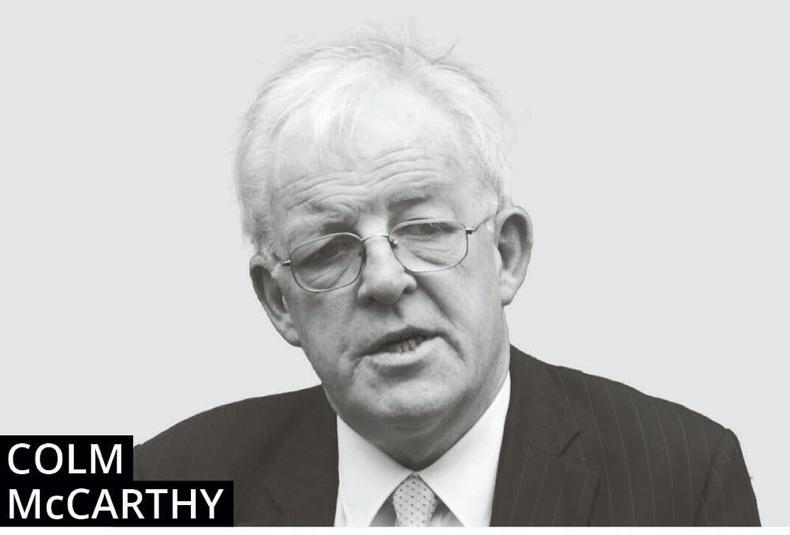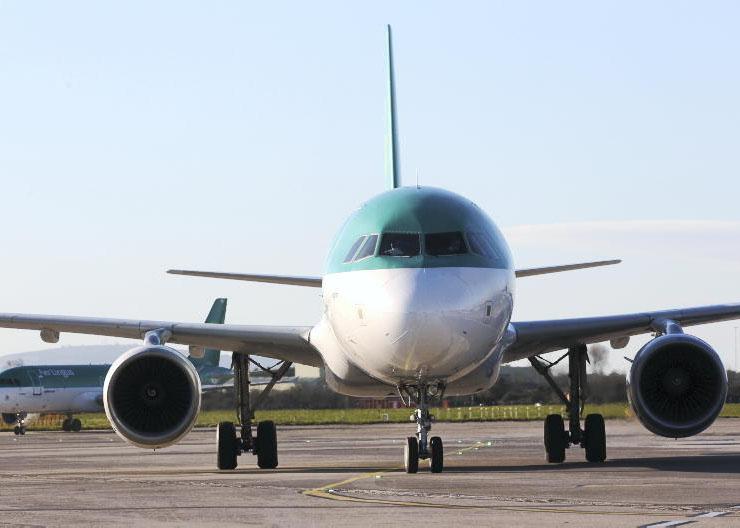It was announced last week that the 2026 FIFA World Cup will be held in North America, hosted jointly by the US, Canada and Mexico. The disappointed bidder was Morocco and the news should have come as a mighty relief to Moroccan taxpayers.
Hosting either the Olympic Games or the football World Cup has become a festival of waste and corruption in recent decades. Less-developed countries including Brazil and South Africa have been burdened with colossal expense, mostly for stadiums and related facilities for which there is no continuing requirement. The city of Athens is graced by, would you believe, an abandoned baseball venue, a relic of the 2004 games when baseball was briefly included as an Olympic sport.
Russia established a new benchmark with the Sochi winter games two years ago when no less than $50bn was vaporised in an orgy of dodgy dealing and cost over-runs. This record will be exceeded at the next World Cup in 2022 which is due to be held in Qatar, a tiny Gulf state about the size of Munster where the bill is expected to reach $200bn. The matches are scheduled for November and December because of the heat and construction has begun on eight brand-new stadiums. The country is so small that some of these architectural marvels will be visible on a clear day from the next stadium.
Inheritance
Brazil’s inheritance from the last World Cup includes stadiums in remote cities which do not happen to have a top-division football team and hence have no regular fixtures. Several have been abandoned by the municipal authorities, unable to meet the running costs. The stadium in Brasilia is used to park buses, in Cuiaba homeless people have moved into the stadium dressing-rooms while at Manaus the best local team enjoys such poor support that it plays home games on a training pitch beside the white elephant. The only consolation from the taxpayer’s perspective is that several politicians and business cronies are already in jail while several other Brazilian notables are, as they say, helping the police with their enquiries.
Prodigious waste
There will be no such scrutiny of the prodigious waste under way in Russia, which does not have independent judicial authorities. There are 11 venues in use over the next few weeks and all 11 have been built from scratch or renovated at substantial cost. The total bill is expected to reach about $12bn. Moscow and St Petersburg are among the host cities, have popular football clubs and some long-term use for fancy stadiums. But there are others that are unfamiliar, even to avid football fans. This is because these smaller cities do not have a top-flight team, are unlikely ever to have one and hence no prospect of any continuing demand for large stadiums.
The average attendance at premier division games in Russia last season was only 13,000. Last Saturday, Peru met Denmark in a city called Saransk in a fine 45,000 capacity stadium built for the World Cup at a cost of $300m. The local team, Mordovia Saransk, got relegated last year and their average attendance in the lower division has been running at 2,400. When the World Cup ends, the upper tier of the stadium will be removed, cutting capacity to 28,000. The city, 630km east of Moscow, has a population of just 300,000 people. Even at the reduced capacity the stadium may never see another full house. This is a Bertiebowl in the Volga basin, an outrageous waste of public funds. At least in Brazil and South Africa there were widespread protests at the waste but there will be none in Russia, an autocracy, or in Qatar, a feudal sheikdom.
The award of the World Cup to these two countries was corrupt from beginning to end and numerous FIFA officials have faced criminal charges, mainly because they foolishly routed some of the corruption money through the US banking system and were caught by the FBI for money-laundering violations.
The 2022 Qatar World Cup will hopefully be the last to see waste and corruption on this epic scale. The 2026 finals in North America will mainly be accommodated in stadiums already built and paid for. In a belated response to the FIFA scandals, the European football authority, UEFA, has decided that the 2020 European finals will no longer be concentrated in a single host country, or a neighbouring pair of countries as has been the pattern in the past, spawning an orgy of stadium-building. Instead, matches will be played in 12 cities around the continent, including Dublin, which already have modern stadiums. The others are Bilbao, Rome, Baku, Amsterdam, Bucharest, St Petersburg, Copenhagen, London, Glasgow, Munich and Budapest. Taxpayers should be able to enjoy these matches in tranquillity.
Read more
Long read: six countries in seven weeks
It was announced last week that the 2026 FIFA World Cup will be held in North America, hosted jointly by the US, Canada and Mexico. The disappointed bidder was Morocco and the news should have come as a mighty relief to Moroccan taxpayers.
Hosting either the Olympic Games or the football World Cup has become a festival of waste and corruption in recent decades. Less-developed countries including Brazil and South Africa have been burdened with colossal expense, mostly for stadiums and related facilities for which there is no continuing requirement. The city of Athens is graced by, would you believe, an abandoned baseball venue, a relic of the 2004 games when baseball was briefly included as an Olympic sport.
Russia established a new benchmark with the Sochi winter games two years ago when no less than $50bn was vaporised in an orgy of dodgy dealing and cost over-runs. This record will be exceeded at the next World Cup in 2022 which is due to be held in Qatar, a tiny Gulf state about the size of Munster where the bill is expected to reach $200bn. The matches are scheduled for November and December because of the heat and construction has begun on eight brand-new stadiums. The country is so small that some of these architectural marvels will be visible on a clear day from the next stadium.
Inheritance
Brazil’s inheritance from the last World Cup includes stadiums in remote cities which do not happen to have a top-division football team and hence have no regular fixtures. Several have been abandoned by the municipal authorities, unable to meet the running costs. The stadium in Brasilia is used to park buses, in Cuiaba homeless people have moved into the stadium dressing-rooms while at Manaus the best local team enjoys such poor support that it plays home games on a training pitch beside the white elephant. The only consolation from the taxpayer’s perspective is that several politicians and business cronies are already in jail while several other Brazilian notables are, as they say, helping the police with their enquiries.
Prodigious waste
There will be no such scrutiny of the prodigious waste under way in Russia, which does not have independent judicial authorities. There are 11 venues in use over the next few weeks and all 11 have been built from scratch or renovated at substantial cost. The total bill is expected to reach about $12bn. Moscow and St Petersburg are among the host cities, have popular football clubs and some long-term use for fancy stadiums. But there are others that are unfamiliar, even to avid football fans. This is because these smaller cities do not have a top-flight team, are unlikely ever to have one and hence no prospect of any continuing demand for large stadiums.
The average attendance at premier division games in Russia last season was only 13,000. Last Saturday, Peru met Denmark in a city called Saransk in a fine 45,000 capacity stadium built for the World Cup at a cost of $300m. The local team, Mordovia Saransk, got relegated last year and their average attendance in the lower division has been running at 2,400. When the World Cup ends, the upper tier of the stadium will be removed, cutting capacity to 28,000. The city, 630km east of Moscow, has a population of just 300,000 people. Even at the reduced capacity the stadium may never see another full house. This is a Bertiebowl in the Volga basin, an outrageous waste of public funds. At least in Brazil and South Africa there were widespread protests at the waste but there will be none in Russia, an autocracy, or in Qatar, a feudal sheikdom.
The award of the World Cup to these two countries was corrupt from beginning to end and numerous FIFA officials have faced criminal charges, mainly because they foolishly routed some of the corruption money through the US banking system and were caught by the FBI for money-laundering violations.
The 2022 Qatar World Cup will hopefully be the last to see waste and corruption on this epic scale. The 2026 finals in North America will mainly be accommodated in stadiums already built and paid for. In a belated response to the FIFA scandals, the European football authority, UEFA, has decided that the 2020 European finals will no longer be concentrated in a single host country, or a neighbouring pair of countries as has been the pattern in the past, spawning an orgy of stadium-building. Instead, matches will be played in 12 cities around the continent, including Dublin, which already have modern stadiums. The others are Bilbao, Rome, Baku, Amsterdam, Bucharest, St Petersburg, Copenhagen, London, Glasgow, Munich and Budapest. Taxpayers should be able to enjoy these matches in tranquillity.
Read more
Long read: six countries in seven weeks








SHARING OPTIONS